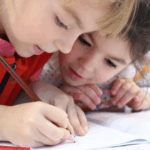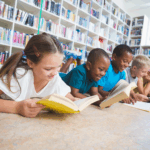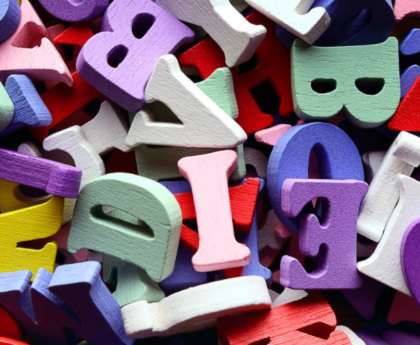Most parents naturally reach for storybooks when reading with their children. There’s something magical about cuddling up with a picture book or an exciting chapter book that sparks imagination. But what about science and social studies books? These content-rich texts often sit neglected on library shelves, yet they offer powerful benefits for young readers—especially those who struggle with early reading skills.
The Knowledge Foundation of Reading Success
When a child faces reading challenges, parents might focus exclusively on “learning to read” materials—phonics readers and simple stories. While these are valuable tools, limiting children to these materials alone creates an unintended consequence: a knowledge gap that makes reading harder as they grow.
Research clearly shows that background knowledge is crucial for reading comprehension. According to a 2024 study published in the journal Developmental Psychology, building background knowledge through content-rich instruction translates into higher reading achievement, particularly for children from low-income backgrounds.
This connection between knowledge and reading ability isn’t new. The famous 1987 baseball study demonstrated that children who were weaker readers but knowledgeable about baseball understood passages about baseball better than stronger readers who lacked baseball knowledge. What children know about a topic is often a stronger predictor of how well they’ll understand a text than their general reading ability.
Why Science and Social Studies Books Build Better Readers
Content-rich books do more than teach facts. They build the foundations that make all reading possible. Here’s how:
They introduce academic vocabulary: Words like “democracy,” “ecosystem,” or “revolution” rarely appear in fiction for children but are common in content-area texts. These terms build the sophisticated vocabulary children need for school success.
They develop critical thinking: Science and social studies texts often present cause-and-effect relationships, comparisons, and complex concepts that challenge children to think deeply about what they’re reading.
They provide mental frameworks: When children read about how plants grow or how communities work, they develop mental models that help them understand and organize new information in these areas.
They motivate reluctant readers: Many children who struggle with fiction are drawn to fact-based texts about topics that fascinate them—whether dinosaurs, space, or historical events.
How Content-Rich Books Help Struggling Readers
Children with reading difficulties often benefit most from science and social studies texts. When a child knows a lot about a subject, this knowledge can compensate for weaker reading skills.
A comprehensive review published in Reading Research Quarterly found that students with lower reading abilities but strong background knowledge on a topic showed significantly better comprehension than expected based on their general reading level.
This effect creates what reading experts call a “compensatory relationship” between decoding skills and knowledge. A child who struggles with the mechanics of reading but has strong knowledge about birds, for example, can use that knowledge to make sense of a challenging text about birds.
For parents of struggling readers, this research offers hope: by building your child’s knowledge through science and social studies books, you provide them with tools to become better readers across all subjects.
Create a Balanced Reading Diet
While fairy tales and fiction remain valuable, a balanced reading diet includes healthy servings of science and social studies texts. Here’s what that might look like:
For preschoolers and kindergarteners: Picture books about animals, community helpers, weather, and simple history stories. Look for texts with real photographs alongside illustrations.
For early elementary students: Begin introducing simple informational books with more detailed content, diagrams, captions, and glossaries. Books about life cycles, simple machines, historical figures, and different cultures work well.
For upper elementary students: More complex informational texts that introduce specialized vocabulary and concepts. Look for books that include primary sources, data, and multiple perspectives on historical or scientific topics.
Choose Quality Science and Social Studies Books
Not all informational books are created equal. The best ones:
- Present accurate, up-to-date information
- Include visual supports like diagrams, maps, and photographs
- Organize information logically with helpful text features (headings, captions, etc.)
- Avoid overwhelming young readers with too many concepts at once
- Use language that’s accessible but doesn’t oversimplify complex ideas
Check out resources like the National Science Teaching Association’s “Outstanding Science Trade Books” list or the National Council for the Social Studies’ “Notable Trade Books” for some recommendations.
Bring Science and Social Studies Reading Home
Reading about science and social studies doesn’t have to feel like homework. Try these approaches:
- Follow your child’s interests, whether dinosaurs, space, ancient Egypt, or ocean animals
- Read aloud more complex texts even after your child can read independently
- Discuss new vocabulary and concepts while reading
- Connect books to real-life experiences through museum visits, nature walks, or cooking
- Ask open-ended questions that encourage critical thinking about what you’ve read
Balance Knowledge-Building with Foundational Skills
Remember that while knowledge-building is powerful, it’s not a complete solution for struggling readers. Children who have difficulty with reading also need explicit, systematic instruction in phonics, phonemic awareness, and other foundational skills. Building background knowledge complements but doesn’t replace these crucial elements of learning to read.
The Science of Reading approach emphasizes both knowledge development and systematic skills instruction working together. For a struggling reader, interesting science and social studies books might increase motivation and improve comprehension of familiar topics, but they must be paired with targeted support for decoding, word recognition, and reading fluency.
This balanced approach—building knowledge while developing foundational skills—creates the strongest pathway to reading success for all children, especially those who find reading challenging.
The Knowledge-Building Reading Approach
At Reading.com, we recognize the crucial role that content knowledge plays in reading development. Our approach combines systematic phonics instruction with rich, knowledge-building texts to create well-rounded readers.
When children read widely across subjects, they don’t just learn to decode words—they develop the background knowledge and vocabulary that turn good decoders into excellent comprehenders.
Want to experience how the science of reading combines with content-rich texts to build strong readers? Start your free 7-day trial of the Reading.com app today.





